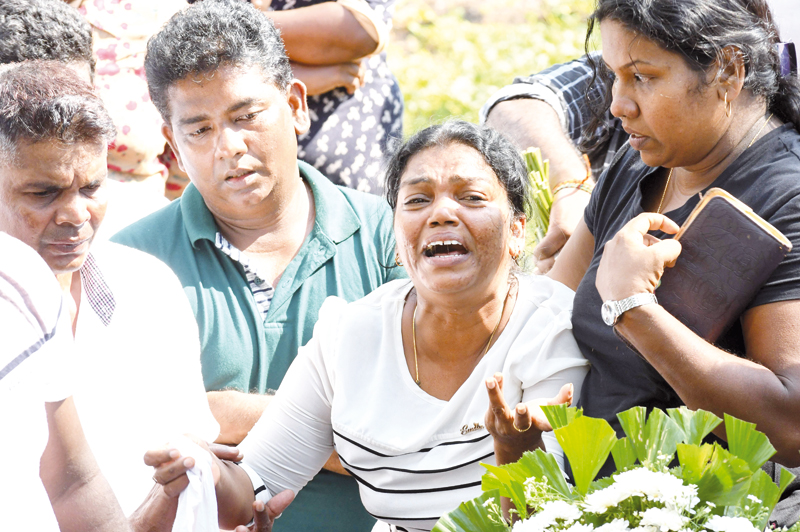

Colombo: The IS group on Tuesday said it was behind a devastating string of suicide attacks against churches and hotels in Sri Lanka that killed more than 320 people on Easter Sunday.
The claim emerged more than 48 hours after the near-simultaneous blasts tore through three high-end hotels popular with foreigners and three churches packed with Christians marking Easter.
It came after Sri Lanka’s government said initial investigations suggested the attack had been carried out as “retaliation” for shootings at two mosques in New Zealand last month that killed 50 people.
The Sri Lankan government had already pointed the figure at a little-known local extremist group called National Thowheeth Jama’ath (NTJ), but said it was investigating whether they had international support.
“Those that carried out the attack that targeted members of the US-led coalition and Christians in Sri Lanka the day before yesterday are IS group fighters,” a statement released by the group’s propaganda agency Amaq said.
It presented no immediate evidence for the claim, or further details on the attackers.
But police sources in Sri Lanka said that the attackers who targeted two of the hotels hit on Sunday were brothers, sons of a wealthy Colombo spice trader. Their names were not immediately revealed, but they were said to be in their twenties.
Guests were queuing for breakfast at the Shangri-La and Cinnamon Spice hotels when the two men detonated their bombs.
A fourth attack against a hotel on Sunday failed, sources also said, though it was not immediately clear if the bomber’s explosives had failed or he had chosen not to detonate them. He later blew himself up when police tracked him to a lodging in the capital.
Police have detained at least 40 people as they investigate the worst act of violence in Sri Lanka since a civil war ended a decade ago.
On Tuesday, grieving Sri Lankans began to bury their dead and the country observed a day of national mourning.
Three minutes of silence were marked nationwide from 8:30 am (03:00 GMT), the time the first suicide bomber struck on Sunday, unleashing carnage. Flags were lowered to half mast on government buildings, and liquor shops were ordered closed for the day.
Hours earlier, the government imposed a state of emergency giving police and the military special powers including the ability to arrest suspects without a court order. More than a thousand people gathered on Tuesday at St Sebastian’s Church in Negombo, north of the capital, which was among those devastated in the blasts, to pay tribute to the dead.
An elderly man wept uncontrollably by the coffin bearing the body of his wife, while relatives of other victims stood aghast and silent. Coffins were carried into the church grounds one by one for services, and then to a newly-established cemetery on church land.
The attacks were the worst ever against the country’s small Christian minority, who make up just seven per cent of the 21 million population. Officials are investigating why more precautions were not taken after an April 11 warning from Sri Lanka’s police that a “foreign intelligence agency” had reported the NTJ planned suicide attacks on churches. — AFP
Oman Observer is now on the WhatsApp channel. Click here



